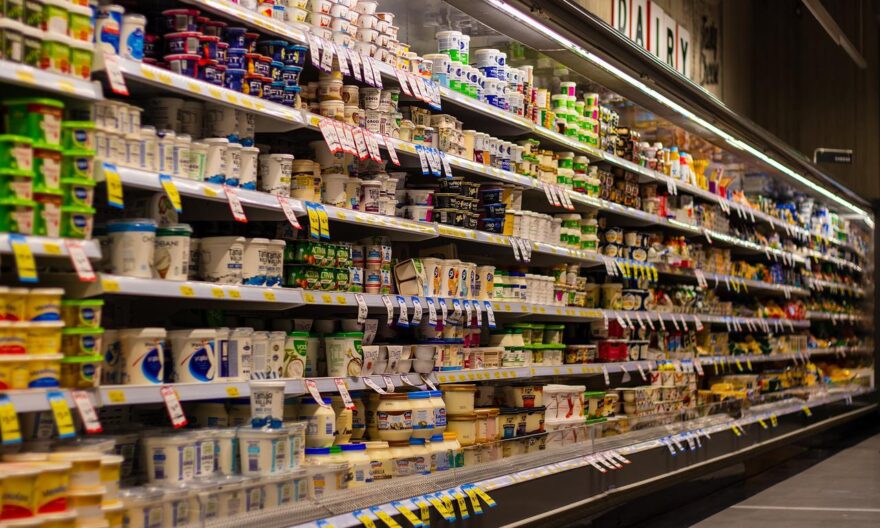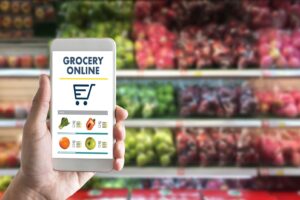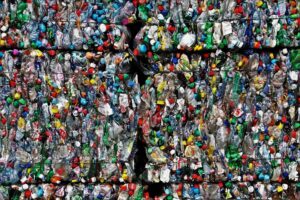
Manufacturers in the food industry have had to deal for several weeks with the collateral consequences of the war in Ukraine and the resulting shortages of certain food commodities (notably sunflower oil). Such shortages have forced producers to immediately adjust their recipes in order to continue delivering products to market, but a new challenge has arisen: the inability to make timely label changes due to printing delays. Now, the government is requiring that manufacturers resolve their transparency issues regarding consumer information on food labels within the next six months.
Ukraine is one of the main producers of sunflower oil internationally, and due to the military crisis there, the world is currently experiencing a major shortage. Many food manufacturers have turned to substitute oils, but alternatives such as palm oil are problematic for many consumers. And in the short term, these substitutions are not always apparent on certain packaging labels.
The sunflower oil shortage: “A crisis that took everyone by surprise”
The immediate need to update food labels has turned out to be a serious problem for manufacturers, who need to identify the raw materials impacted among the recipes of dozens and dozens of products that need to be updated. The task becomes all more stressful due to the legal requirement that every producer must submit a request for exemption to the DGCCRF (a public body for the control of consumer fraud) until the labeling of its products is modified. If granted, temporary exemptions are only allowed for a maximum period of six months.
Time is of the essence for everyone in the sector, many of whom have been working on the issue from the start. Thankfully at least, the current food labeling challenge is only an issue of transparency regarding consumers, and not a health issue. Manufacturers have already finalized a list of safe and viable alternative ingredients with DérogConso, a public health body that operates as part of the Ministry of Economy and Finance.
“It is a challenge. You have to identify every single affected recipe and its related labels,” says Hafida Saidani, Insight product manager at Trace One, the world leader in collaboration between manufacturers and retailers. “However, many manufacturers still work manually on critical product data.” For nearly two months, Trace One’s teams have been working continuously to support manufacturers in updating their recipes and labeling. “Everyone was caught short”, says Saidani, before adding that Trace One has been able to support all impacted customers thanks to Insight, a powerful data analysis tool that “offers a global view of all product specification data”.
Centralized Data: A quick response to any crisis
As Hafida Saidani explains, a centralized data analysis tool allows users to “save time by identifying in a few clicks the elements on which to act to improve recipes.” Even if many customers were not aware of the “finesse of the tools’s analysis” prior to the Ukraine crisis, “easily being able to find all raw materials coming from Ukraine or Russia” has been a great advantage. Once the relevant information has been identified, “our Insight data analysis solution provides exportable lists, which gives our customers a real ability to take action by reworking their recipes and then initiating the process of updating labelling and communication”. Having reliable and centralized databases is, according to Hafida Saidani, one of the priorities of manufacturers in order to “to anticipate all types of crises”, whether it be a supply crisis like today, or a health crisis, with product recalls for example.
One thing is certain: manufacturers had not anticipated the prolonged impact of the war in Ukraine and have had to adapt in record time to a new reality.
While consumers may still have to wait several weeks before seeing the updated labels, “most manufacturers have already begun the process, and we should probably have a better understanding of the scope of issue of package updating in the near future,” says Hafida Saidani before concluding: “This was a crisis where it was necessary to act very quickly and where centralized product data enables manufacturers to have a 360 degree view of their products to identify the products affected and to act quickly, to prepare the work on the transparency of products placed on the market. This work is not yet complete”. And even so, Trace One continues to remain cautious on the unfolding crisis in Ukraine.



